OUR COMMITMENT TO SAFETY, QUALITY AND PROTECTION
Astron Energy is committed to safety, quality and the environment.
Many things have changed over the years, but one thing has not: our commitment to protecting both people and the environment.
Our commitment is evidenced in the fact that we have made it policy while investing significantly to make sure we put our money where our mouth is.
OUR COMMITMENT TO SAFETY, QUALITY AND PROTECTION
Astron Energy is committed to safety, quality and the environment.
Many things have changed over the years, but one thing has not: our commitment to protecting both people and the environment.
Our commitment is evidenced in the fact that we have made it policy while investing significantly to make sure we put our money where our mouth is.
Emergency response
For refinery related queries, SMS the word ‘Info‘ to 30786 and we will call you back. For our Client Services, please email CRM@astronenergy.co.za.
Contact us on (021) 403 7911.
Emergency response
For refinery related queries, SMS the word ‘Info‘ to 30786 and we will call you back. For our Client Services, please email CRM@astronenergy.co.za.
Contact us on (021) 403 7911.
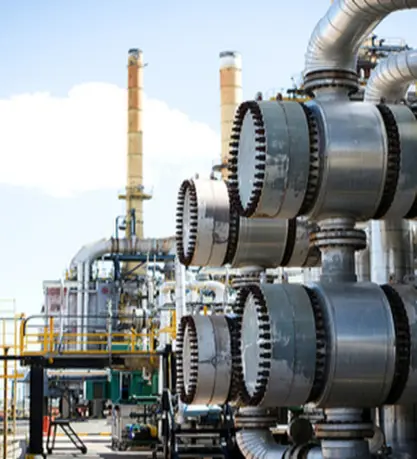
Our Quality Improvement Programme is an integral part of Astron Energy‘s commitment to producing high-quality fuels. Through mutual respect and teamwork, we create an environment that fosters continual improvement.
The programme is designed to ensure that we produce transportation fuels that not only meet performance expectations and are delivered on time but are always manufactured safely and in an environmentally sound way.
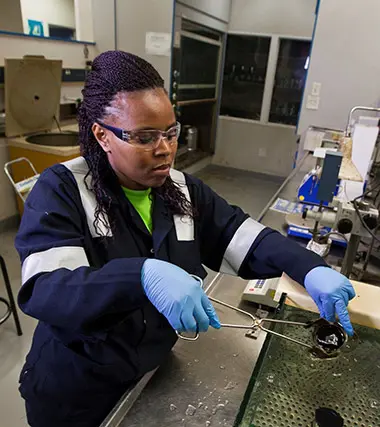
At our refinery, all our employees take responsibility for and work together towards achieving our overall objective of a safe working environment.
We take the health and safety of all our employees very seriously and are looking at ways to ensure their well-being, implementing programmes to maintain and create ever-improving safety records.
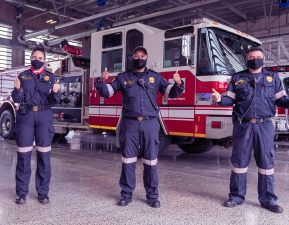
Our refinery has a full-time, on-site industrial fire department with a fire chief and fully trained and certified firefighters and Emergency Medical Technicians (EMTs) Their training ensures that we are equipped to deal with all types of emergencies.
We also have operations based Shift Emergency Response Team (SERT) members, who are trained to work closely with the fire department to further manage emergency situations.
A key focus of our fire department is prevention-related activity and ensuring that firefighting systems are maintained in an optimal state.
Our fire department also regularly trains and performs drills with local fire departments to evaluate and improve firefighting procedures specific to potential refinery emergencies.
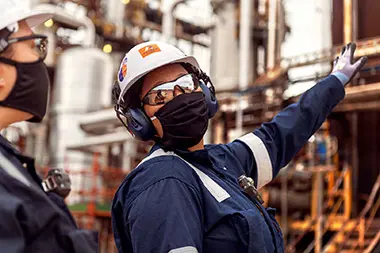
We are working to improve our efforts to protect the environment in which we live and work, through a number of programmes and policies. Our refinery is located between residential communities in the Cape Town area, so we take extra care to make sure we take the necessary steps to protect our employees, their families and our neighbouring communities.
Petroleum refining is one of the most heavily regulated industries in the world. We comply with the required national and local laws that protect human health and the environment, and regularly engage with oversight agencies to make sure we stay abreast of global regulations.
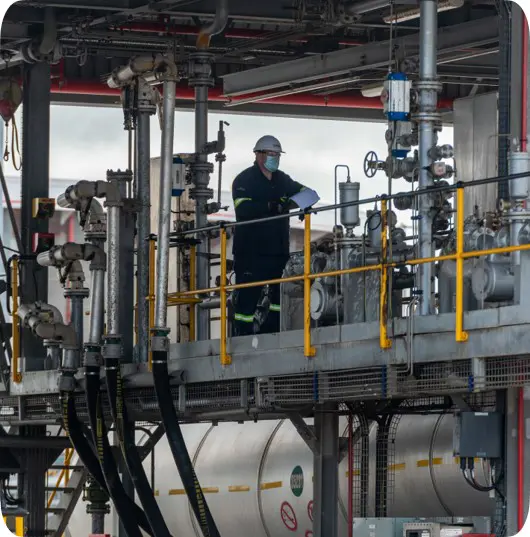
We are committed to sustainability across all areas of our business, in particular as it relates to Environmental, Social and Governance (ESG). We take our responsibility to heart when it comes to reducing our carbon footprint and seek to transition to a low carbon economy and a better future for generations to come.
Renewable and efficient energy is one of the key focus areas in our approach to sustainability. We have implemented an energy efficiency program to reduce the energy requirements at our refinery by between 10-20% by 2023.
Water is essential to our operations and we are committed to the responsible use and conservation of water. 80% of the water needed for our refinery process comes from recycled water from a local treatment plant. We have installed and operate an onsite reverse osmosis unit that purifies the water to the level required for use in the refinery. We also have a programme in place to reduce the amount of water released to the ocean after effluent treatment. At present we are able to recycle between 60-70% of the water destined for the ocean, using technology imported from abroad.
Another important initiative is waste management. We have been segregating general waste at source for a decade, thereby diverting potential recyclable material away from sensitive and overused landfill sites. This has resulted in social and economic benefits by providing raw material to third party recycling facilities.

Our Quality Improvement Programme is an integral part of Astron Energy‘s commitment to producing high-quality fuels. Through mutual respect and teamwork, we create an environment that fosters continual improvement.
The programme is designed to ensure that we produce transportation fuels that not only meet performance expectations and are delivered on time but are always manufactured safely and in an environmentally sound way.

At our refinery, all our employees take responsibility for and work together towards achieving our overall objective of a safe working environment.
We take the health and safety of all our employees very seriously and are looking at ways to ensure their well-being, implementing programmes to maintain and create ever-improving safety records.

Our refinery has a full-time, on-site industrial fire department with a fire chief and fully trained and certified firefighters and Emergency Medical Technicians (EMTs) Their training ensures that we are equipped to deal with all types of emergencies.
We also have operations based Shift Emergency Response Team (SERT) members, who are trained to work closely with the fire department to further manage emergency situations.
A key focus of our fire department is prevention-related activity and ensuring that firefighting systems are maintained in an optimal state.
Our fire department also regularly trains and performs drills with local fire departments to evaluate and improve firefighting procedures specific to potential refinery emergencies.

We are working to improve our efforts to protect the environment in which we live and work, through a number of programmes and policies. Our refinery is located between residential communities in the Cape Town area, so we take extra care to make sure we take the necessary steps to protect our employees, their families and our neighbouring communities.
Petroleum refining is one of the most heavily regulated industries in the world. We comply with the required national and local laws that protect human health and the environment, and regularly engage with oversight agencies to make sure we stay abreast of global regulations.

We are committed to sustainability across all areas of our business, in particular as it relates to Environmental, Social and Governance (ESG). We take our responsibility to heart when it comes to reducing our carbon footprint and seek to transition to a low carbon economy and a better future for generations to come.
Renewable and efficient energy is one of the key focus areas in our approach to sustainability. We have implemented an energy efficiency program to reduce the energy requirements at our refinery by between 10-20% by 2023.
Water is essential to our operations and we are committed to the responsible use and conservation of water. 80% of the water needed for our refinery process comes from recycled water from a local treatment plant. We have installed and operate an onsite reverse osmosis unit that purifies the water to the level required for use in the refinery. We also have a programme in place to reduce the amount of water released to the ocean after effluent treatment. At present we are able to recycle between 60-70% of the water destined for the ocean, using technology imported from abroad.
Another important initiative is waste management. We have been segregating general waste at source for a decade, thereby diverting potential recyclable material away from sensitive and overused landfill sites. This has resulted in social and economic benefits by providing raw material to third party recycling facilities.
Here's how our refining
process works.
At our Cape Town refinery we are dedicated to producing high quality fuels through our refining process:
Crude oil arrives
Crude oil arrives by oil tanker in Saldanha Bay for discharge and is then transported to Cape Town refinery via pipeline.
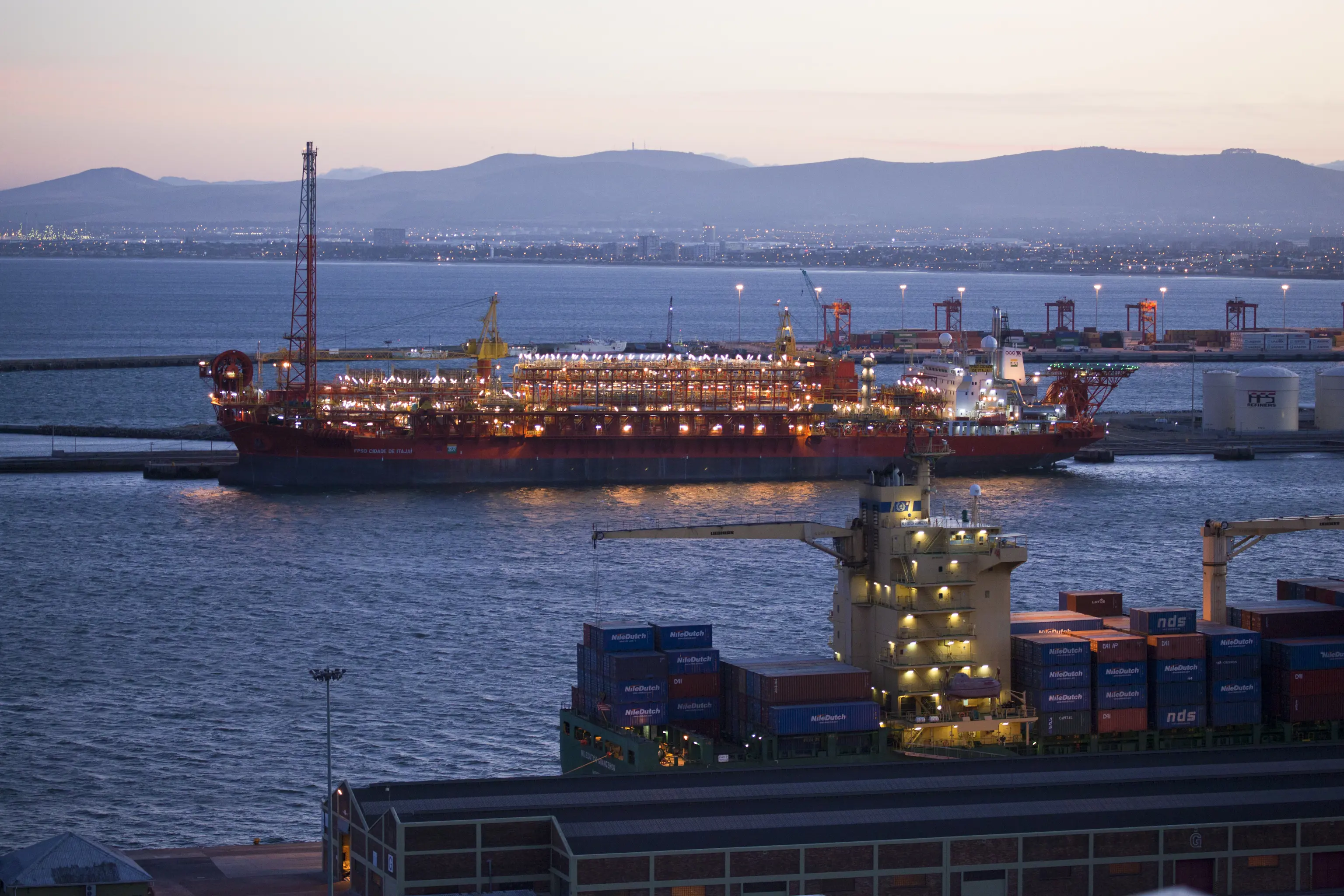
Converting the crude oil
Our team is then responsible for converting the crude oil into final products including LPG, petrol, jet fuel, diesel and fuel oil.
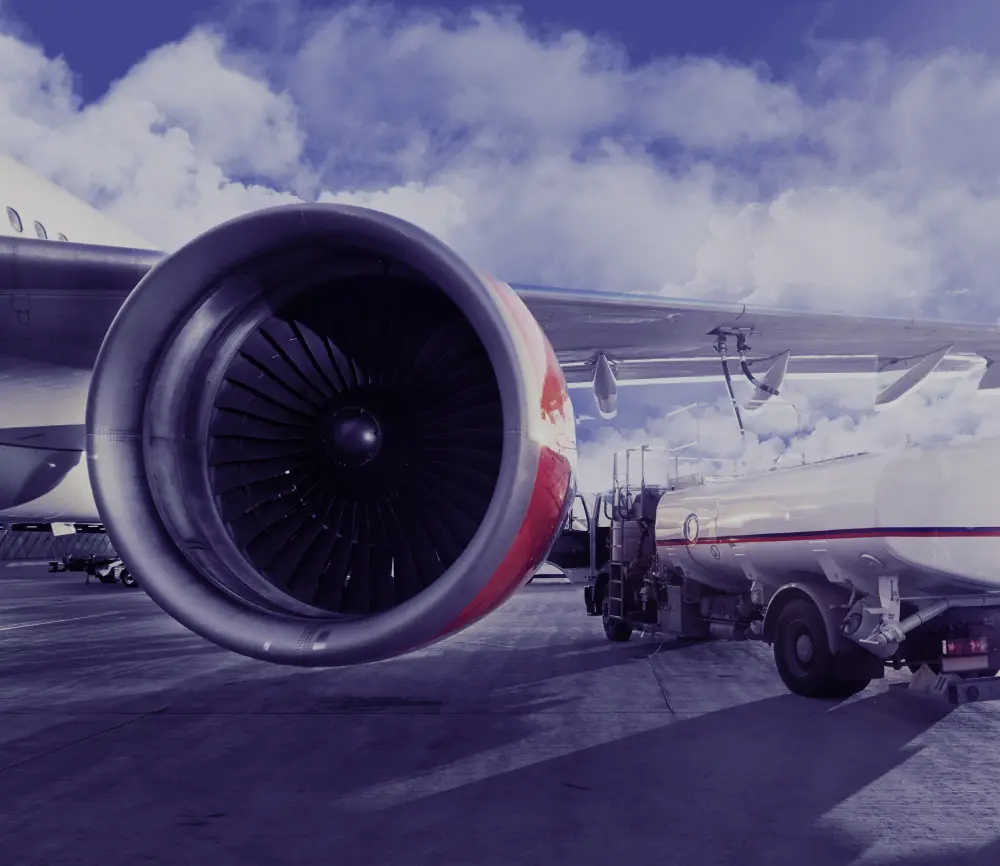
The refining process
Starts in the distillation towers, where crude oil is separated into various components. These components are then further processed and treated to produce final products. Some of the processes used at the refinery are hydrotreating, cracking and reforming.
The refinery also uses processes to remove impurities in the component streams, the most significant of these impurities being sulphur.
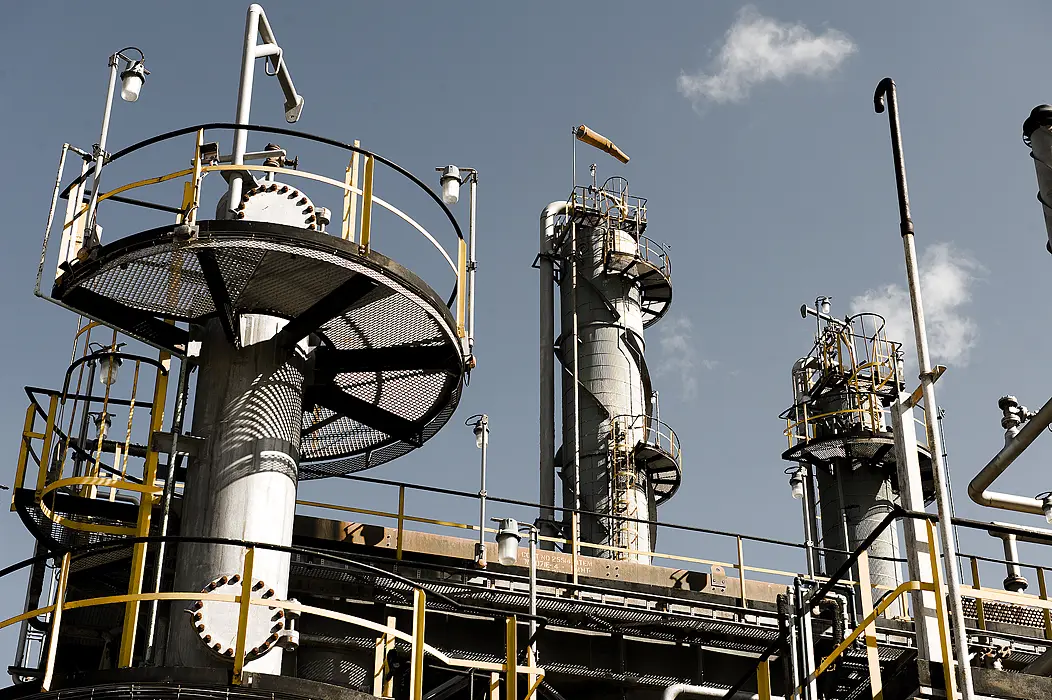
Here's how our refining
process works.
At our Cape Town refinery we are dedicated to producing high quality fuels through our refining process:
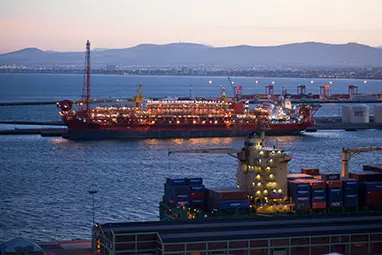
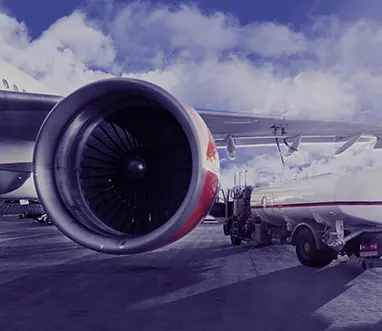
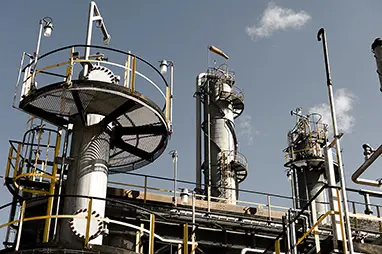
Crude oil arrives
Crude oil arrives by oil tanker in Saldanha Bay for discharge and is then transported to Cape Town refinery via pipeline.
Converting the crude oil
Our team is then responsible for converting the crude oil into final products including LPG, petrol, jet fuel, diesel and fuel oil.
The refining process
Starts in the distillation towers, where crude oil is separated into various components. These components are then further processed and treated to produce final products. Some of the processes used at the refinery are hydrotreating, cracking and reforming.
The refinery also uses processes to remove impurities in the component streams, the most significant of these impurities being sulphur.
Only about 40% of crude oil
produces high-quality fuels
when processed.
A number of the components separated from the crude oil need to be further processed using catalysts to convert low value product to high value product:
- Fluidised Catalytic Cracking Unit (FCC) which cracks the heavy product into LPG, petrol and diesel.
- Platformer and Isom Units which converts low octane petrol components to high octane petrol.
The final products are blended from the various treated component streams and are stored in tanks, ready to be shipped via tanker, truck or pipeline to our customers throughout South Africa.









